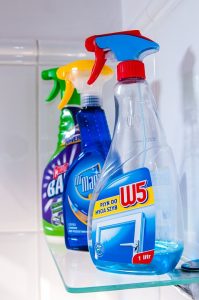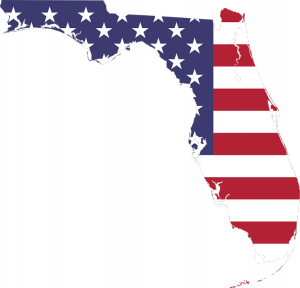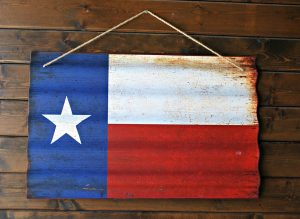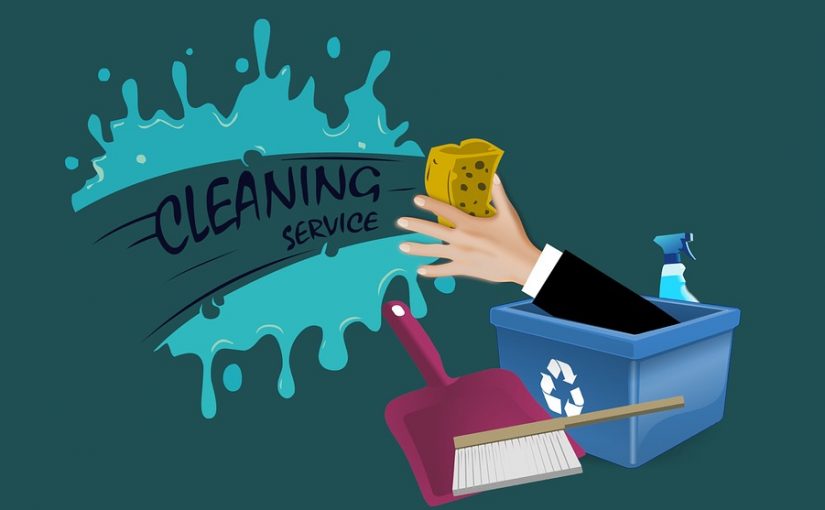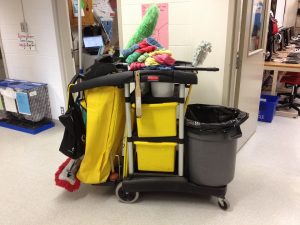A simple and concise explanation of your businesses Experience Modification Rating.

Understanding your experience modification rating is important, and can help reduce insurance premiums for workers compensation insurance. The experience modification rating goes by a variety of names including experience mod, experience rating, e-mod, EMR, and sometimes just the mod. It is a factor that compares your business’ losses with other businesses in the same classification, and has the ability to increase or decrease your premium cost. The experience rating is used to customize the insured’s premium to better suit the characteristics of a certain employer or risk. It is found on the Experience Modification Rating Worksheet that you will receive each year before your policy effective date. An experience rating of 1 is considered a unity mod, and does not change the cost of premium. A rating that is >1 is called a debit mod, and would increase the cost of premium. On the flip side, a mod that is <1 is referred to as a credit mod, and would reduce the cost of insurance to the employer. So if an employer has a mod of 0.80, their premium would be 20% cheaper. The idea being that an insured with a mod that is >1 is riskier than the average, and should therefore have to pay more. While an insured with a mod that is <1 is less risky than the average, and should be rewarded by paying less.
|
Manual Premium |
Experience Modification Rate |
Premium charged to employer |
| Employer 1 |
$250,000 |
.75 |
$187,500 |
| Employer 2 |
$250,000 |
1.00 |
$250,000 |
| Employer 3 |
$250,000 |
1.25 |
$312,500 |
As seen above, a credit mod (E-Mod value is <1) provides the employer with a cheaper premium. While a debit mod causes the employer to pay a higher premium, and the unity mod causes no change in premium at all. This change in premium provides incentive for employers to reduce and control losses in order to lower their experience mod.
Who calculates the employers experience modification rating? The experience mod factor is generated by the National Council on Compensation Insurance (NCCI). The mod is generated 60 to 90 days before the rating effective date, and therefore doesn’t use the current policy in the calculation. The NCCI uses a period of three years of loss experience and compares it to the average losses in the class. The time period that is used for data is determined by the risk’s rating effective date. The data that is used in the experience modification rating calculation will include the policies that have an effective date that is no less than 21 months prior to the rating effective date, and no more than 57 months before the rating effective date. In other words, policies that begin within 21 months and 57 months before the rating effective date will be used in the calculation. For example, a policy that renews on 1/1/17 would include policies with effective dates that fall between 4/1/12 and 4/1/15. Therefore, the policies that would be included in the data for the experience mod would be the 1/1/13-1/1/14, 1/1/14-1/1/15, and 1/1/15-1/1/16 policies.
As of 2017, the NCCI’s Experience Rating Plan manual for Workers Compensation and Employers Liability Insurance (the “Plan”) is currently approved and authorized to use in 39 jurisdictions. Right now the Plan applies to Indiana, Massachusetts, and North Carolina, however these states have bureaus that produce their own intrastate ratings. An “intrastate” rating refers to a risk that is only in one state that uses the Plan. By contrast, an “interstate” rating refers to a risk that is located in two or more states that use the Plan. Minnesota, New York, and Wisconsin have also authorized the use of the Plan, but only on an interstate basis. The Plan does not apply to California, Delaware, Michigan, New Jersey, Pennsylvania, North Dakota, Ohio, Washington, and Wyoming. These states administer their own plans and produce their own rates. However, since insurance is regulated on a state-by-state basis, the states that currently approve or disapprove the Plan are always subject to change.

The experience modification rating is a mandatory plan if the insured is qualified. In order to qualify for an experience rating the insured must have paid a minimum amount of premium determined by the state within the most recent 24 months of the rating period, or have reached an average amount of premium that meets the established threshold over the entire rating period. For example, the state of Florida requires that an employer must pay at least $10,000 in premium within the last two years, or have paid an average of $5,000 over the entire rating period.
| Employer 1: |
Employer 2: |
Employer 3: |
| 2015 – $7,000 |
2015 – $4,500 |
2015 – $4,000 |
| 2014 – $3,500 |
2014 – $4,100 |
2014 – $5,000 |
| 2013 – $2,000 |
2013 – $6,500 |
2013 – $4,500 |
| Qualification requirements are met in the two most recent years. ($7,000+$3,500= $10,500) |
Qualification requirements are met by averaging the premium over 3 years. ($4,500+$4,100+$6,500)/3= $5,033 |
Qualification requirements are not met. |
In this example, Employers 1 and 2 would be required to apply an experience mod to their manual premium, and Employer 3 would not qualify.
The difference between claim severity and frequency. When referring to an employer’s loss history, the terms severity and frequency are often brought up. Severity meaning how severe, or how expensive a single loss is, and frequency meaning how often claims occur. When calculating an experience mod, the NCCI assigns more weight to high frequency claims than it does to high severity claims. The logic being that if the insured has a history of a high frequency of claims, then there is a good chance the insured will continue to have losses. Also, having a high frequency of claims increases the chance that the insured will experience a larger loss in the future. In other words, frequency leads to severity. However, if the insured only has one claim with a high severity, there is a good chance that it was a more uncommon accident or injury that is unlikely to occur again. The NCCI gives more weight to the frequency of claims by using the Split rating system.
Split Rating. NCCI uses split rating to divide losses incurred by a claim into Primary Losses and Excess losses. This is done so that the frequency and severity of claims can be weighted properly. Primary losses represent frequency, whereas excess loses represent severity. In the calculation of the experience modification rating, primary losses are weighted more than excess losses. However, the excess losses shouldn’t be ignored as they can be a very large amount. The NCCI uses a ratio called the Discount Ratio (D Ratio) to find the expected primary losses by multiplying the expected losses by the D Ratio. To find the expected excess loss, they multiply the expected losses by 1 – the D Ratio. When finding the actual primary losses, as of 2017 the NCCI considers the first $16,500 of a claim to be the actual primary loss, and anything leftover to be the excess loss. If the claim is less than $16,500, the entire claim is considered primary loss. The amount of money that is used as the cutoff point for primary losses is referred to as the split point. The split point is a value that is subject to change. In 2013, the split point was increased from $5,000-$10,000, and by 2017 it has climbed to $16,500 where it stands today. The split point will continue to change in the future based on inflation and loss data.
The experience modification factor is calculated by taking the total adjusted actual claims divided by the total adjusted expected claims of your class. So if you have more actual claims than what is expected of your class, the mod will be >1 and you will receive a debit mod. While this seems simple enough, there are many complicated steps that are taken before the final mod is produced.
First, the NCCI collects and records the payroll and loss information on to an experience rating worksheet. Using this information, they calculate the expected losses for each classification using its Expected Loss Rate (ELR). The ELR is the amount of expected losses for the classification per $100 of payroll. So the expected losses equals the ELR x (Payroll/100).
Then they split the expected losses into primary and excess losses using the discount ratio. After that, they must also split the actual losses into primary and excess losses.
To keep the mod from varying too much, the NCCI determines a stabilizing value and adds it to the calculation. This calculation requires the use of the ballast factor and the Wt factor. The ballast factor is a number that is added to help keep the mod from shifting too much, and the Wt factor is the weight assigned to the excess losses. The stabilizing factor is calculated by multiplying the expected excess losses by (1-Wt), and then adding the ballast factor.
Once the primary losses and the stabilizing value has been found, the actual and expected ratable excess losses must be determined. The ratable excess loss is the amount of excess loss that is included in the calculation. This is done simply by multiplying the excess losses by the Wt factor.
Now that we have determined these values, the total adjusted actual losses can be found by adding the actual primary losses + the stabilizing value + the actual ratable excess losses. Likewise, the total adjusted expected losses = expected primary losses + the stabilizing value + the expected ratable excess losses.
Finally, the experience mod can be calculated by dividing the total adjusted actual losses by the total adjusted expected losses.
E-Mod=(Actual Primary Loss+Stabilizing Value+Actual Ratable Excess Loss) ÷ (Expected Primary Loss+Stabilizing Value+Expected Ratable Excess Loss)
E-Mod = Total Adjusted Actual Losses ÷ Total Adjusted Expected Losses
Medical-only claims are not weighted as much in the calculation, and therefore don’t have as much of an impact on the experience mod. Most states have approved an Experience Rating Adjustment (ERA) that limits the amount that medic-only claims are weighted in the experience modification rating. Only 30% of the portion of a medical-only claim is included in the experience mod calculation. This is done in an attempt to decrease the incentive for employers to pay off medical-only claims without reporting it to the carrier.
There are ways for employers to lower their experience mod, and therefore lower their workers compensation costs.
- One effective way to do so is to implement a formal safety program, or make meaningful changes to a pre-existing safety program. Having a written safety program in place can help reduce injuries and accidents which will reduce your losses, and lower your experience mod. An employer should train their employees in the proper safety procedures for driving, lifting and other job related duties. As well as the precautions taken to prevent accidents like slips and falls, such as requiring non-slip shoes. An employer can even consider incorporating rewards and disciplinary actions in their safety program, if it seems necessary.
- Maintaining good hiring and orientation practices can also help reduce losses. Making sure each employee is mentally and physically fit for the job before hiring them is a good way to lower accidents.
- Including a mandatory return to work program can greatly reduce the cost of claims. Having an employee return to work at a light or modified duty will lower the cost of their claim, which can help lower the employer’s losses and will bring their experience modification rating down.
- Taking the time to make sure all your employees are placed in the correct class codes can also help reduce costs.
My Insurance Question is a part of the Insurance Shop LLC. The Insurance Shop is an independent insurance agency, founded in 2005. Over a decade and a half, the agents at the Insurance Shop LLC have developed relationships with dozens of insurance carriers who are hungry to offer coverage to businesses operating in many different industries. If you are looking to shop around for a better value when renewing your commercial insurance package, give us a call at 800-800-4864 to speak with one of our insurance specialists today.
 Workers’ Compensation Insurance is required by law for businesses in most states. So is General Liability in most industries. For that reason, these two policies are the bare minimum coverage a business needs to be in business. Now for a cash-strapped, seasonal, or start-up business; coming up with the initial payment to get coverage in place can be difficult. Because of this issue, many carriers have come up with alternative payment options for these necessary coverages. The most popular alternative payment option is Pay as You Go Workers’ Compensation. One industry in particular that benefits from this option is the residential cleaning industry. Here are four ways residential cleaning companies benefit from choosing the Pay as You Go Option for Workers Comp Coverage.
Workers’ Compensation Insurance is required by law for businesses in most states. So is General Liability in most industries. For that reason, these two policies are the bare minimum coverage a business needs to be in business. Now for a cash-strapped, seasonal, or start-up business; coming up with the initial payment to get coverage in place can be difficult. Because of this issue, many carriers have come up with alternative payment options for these necessary coverages. The most popular alternative payment option is Pay as You Go Workers’ Compensation. One industry in particular that benefits from this option is the residential cleaning industry. Here are four ways residential cleaning companies benefit from choosing the Pay as You Go Option for Workers Comp Coverage.
